What is HCM in cats?
HCM stands for Hypertrophic Cardiomyopathy. That means; abnormal enlargement of the heart muscle. In humans, for example, intense exercise can strengthen the heart muscle, but this is normal and useful. In the case of HCM, enlargement is not normal, much less practical.
HCM is a common condition in cats and can lead to heart failure (fluid in the lungs), thrombus and sudden death.
As the heart muscle gets thicker, the space in the left ventricle (left ventricle) gets smaller. As a result, there is not enough space for all the blood and less blood is pumped through the body per beat. Also, less blood travels from the lungs to the heart, causing blood to pool in the lungs.
Can every cat get HCM?
In principle, any cat can develop HCM. However, veterinarians observe the disease more frequently in certain breeds, e.g. Maine Coon, Ragdoll, Norwegian Forest Cat, British Shorthair and the Sphynx.
Age is also very variable, with some cats developing HCM at a young age (even as young as 6 months) and some cats later in life.
Inheritance of HCM
In some breeds, the condition is hereditary and a blood test can determine if your cat is a carrier of the abnormality that can cause HCM. However, this test is inconclusive. A cat that tests positive for the abnormality does not necessarily develop HCM, and cats that test negative can still develop HCM. A cat needs to have two abnormal genes to know for sure that she will develop the disease and there is no way to test for that. The reason breeders still want to test for the anomaly is because they don't want to cross two carriers. This makes it very likely that many (or all) offspring will have two abnormal genes and therefore develop HCM.
What are the symptoms?
In many cases, you will not notice much of your cat at the beginning of the illness. If you do not go to the vet for a long time, reduced stamina can become noticeable. In many cases, however, a less active cat is attributed to old age. Even cats are not always active by nature. If heart failure is imminent, your cat may start coughing. However, not all cats cough due to fluid in their lungs.
The vet may hear a heart murmur (heart murmur) early on, or notice an irregular heartbeat. Shortness of breath and paralysis often only occur at a later stage. Some cats have no symptoms at all.
How is the diagnosis made?
The veterinarian often suspects HCM based on all observations. A true diagnosis can only be made by an ultrasound scan of the heart. An X-ray is not sensitive enough. It takes a certain amount of experience to perform a good ultrasound scan of a cat's heart. In many cases, your vet will therefore refer your cat to an ultrasound specialist. An ultrasound scan is performed when the cat is awake, so your cat will not need anesthesia.
There is also a test on the market that can be performed using blood. This test is only reliable in severe forms of HCM and not in the early stages.
Can I do something about HCM in cats?
It's always up to you what you want once the diagnosis is made. In many cases, treatment is not necessary and even superfluous if the disease is detected early. As a rule, treatment is only given when the disease has already reached a more advanced stage. It is therefore important to have regular ultrasound examinations of the heart to monitor the progression of the disease. There is no cure for HCM, so treatment consists only of medications that support your cat's heart and circulation.
My cat has a heart murmur and needs surgery. is this safe?
In principle, every anesthetic carries a risk, even in healthy animals. However, if your cat has HCM, it is very important to know at the time of anesthesia if this is a problem for your cat. This can really only be determined correctly with an ultrasound. If the HCM does not present a cardiovascular problem, anesthesia is just as safe as in a healthy animal. However, if there is a problem, your vet will have to make a decision. He/she will always do this in consultation with you.
This text was translated by a translation machine
 Horse Pharmacy
Horse Pharmacy Rugs
Rugs Care
Care Saddle and Attachments
Saddle and Attachments Leg Protection
Leg Protection Bridles
Bridles Feed
Feed Fly Masks
Fly Masks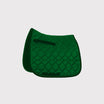 Saddle Pads
Saddle Pads Headcollars and Ropes
Headcollars and Ropes Bits
Bits Other Disciplines
Other Disciplines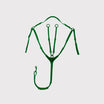 Reins and Auxiliary Reins
Reins and Auxiliary Reins Clipping
Clipping Western
Western Eventing
Eventing Foals
Foals Reflection
Reflection Therapy Products
Therapy Products Boots and Shoes
Boots and Shoes Breeches and Belts
Breeches and Belts Tops
Tops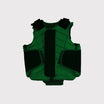 Safety
Safety Competition
Competition Heated Clothing
Heated Clothing Gloves
Gloves Socks
Socks Spurs and Attachments
Spurs and Attachments Technology
Technology Whips
Whips Gifts
Gifts Casual Wear
Casual Wear Underwear
Underwear Rider Pharmacy
Rider Pharmacy Bags
Bags Books
Books Laundry supplies
Laundry supplies Jewelry
Jewelry Feed and Waterbowls
Feed and Waterbowls Equipment
Equipment Tack Room
Tack Room Pest Control
Pest Control Arena
Arena Horse Toys
Horse Toys Wheelbarrows
Wheelbarrows Yard
Yard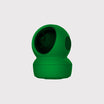 Surveillance
Surveillance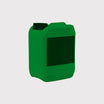 Disinfect
Disinfect Washing Area
Washing Area Lighting
Lighting Horse Pasture
Horse Pasture Current Conductors
Current Conductors Pole
Pole Insulators
Insulators Energisers
Energisers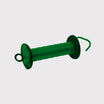 Gate Handles
Gate Handles Batteries and Accumulator
Batteries and Accumulator Nets
Nets Grounding
Grounding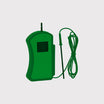 Tools
Tools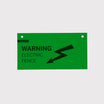 Fencing Security
Fencing Security Wolf Defense
Wolf Defense Fencing Sets
Fencing Sets Fence locks
Fence locks Dogs
Dogs Cats
Cats Rodents
Rodents Dogs Pharmacy
Dogs Pharmacy Cats Pharmacy
Cats Pharmacy Rodents Pharmacy
Rodents Pharmacy Cattle Pharmacy
Cattle Pharmacy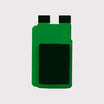 Poultry Pharmacy
Poultry Pharmacy Veterinary Supplies
Veterinary Supplies Cattle
Cattle Sheep and Goats
Sheep and Goats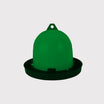 Poultry
Poultry Heat Lamps
Heat Lamps Calves
Calves Marking
Marking Halters
Halters